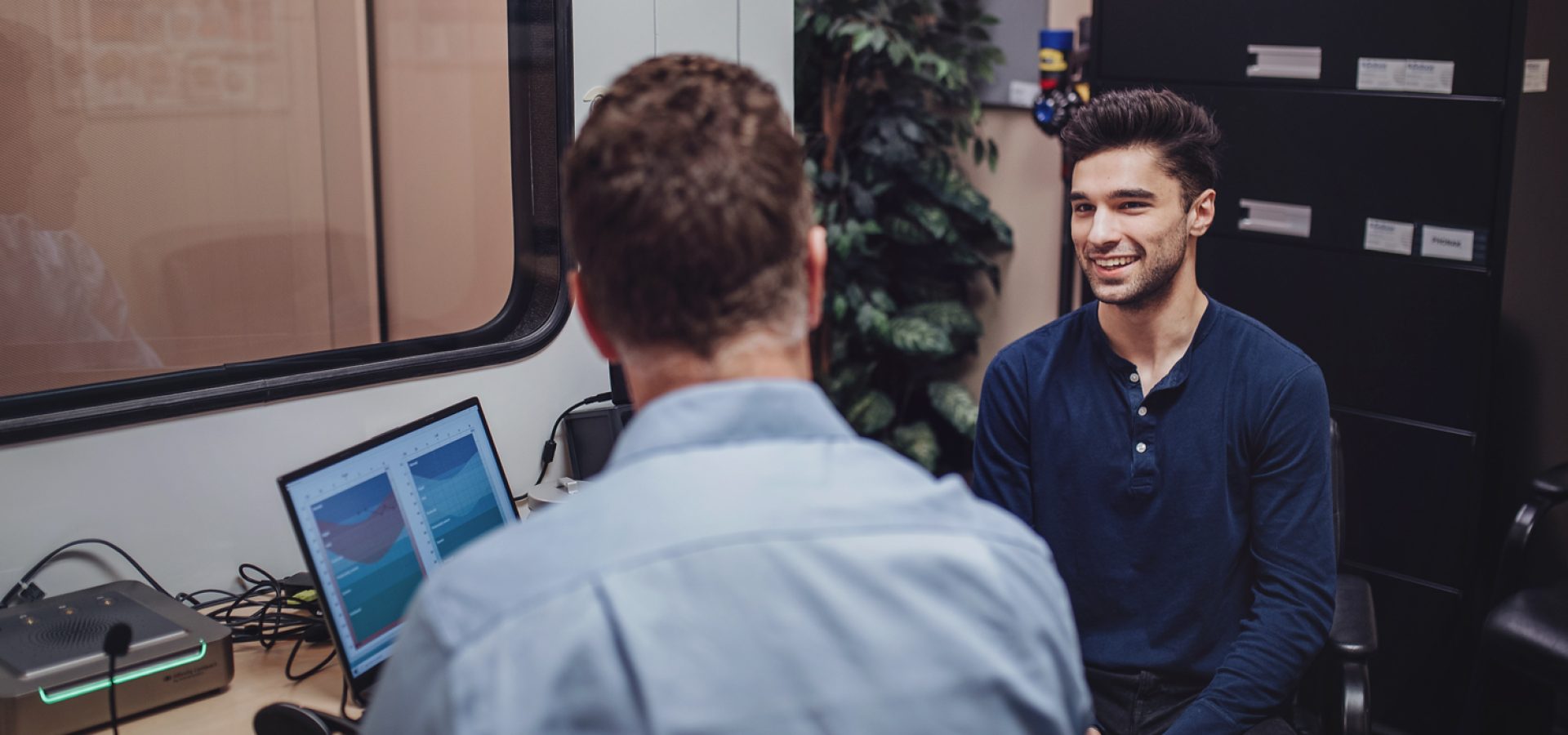Menu

Taking physical exams doesn’t mean you’re sick. It’s just a way to check if your body is functioning properly. The same can be said with taking hearing tests. Your doctor may request a hearing test from time to time.
When this happens, don’t jump to the conclusion that something is wrong. Hearing exams are used by doctors to ensure that your ears are in good working order.
It’s not uncommon for people to lose their hearing over time, which is why your doctor will want to check on your hearing every few years. While this isn’t an issue if a person is relatively young, it can become a huge problem over time.
In the next sections, find out more about the hearing test process, what the results mean, and the possible treatments if ever a hearing ailment comes up.
Undergoing the Process of a Hearing Exam
The entire test only takes up to 30 minutes and is completely painless. Most individuals who have their hearing tested are required to wear earphones and listen to brief tones played into one ear at a time at various volumes and pitches.
The ability to hear each sound indicates whether you can hear high-pitched or low-pitched noises and quiet or loud sounds. It can also detect whether you have hearing loss in your left or right ear.
During a hearing test, you may be asked to listen to a speech played through speakers. It will be played into one ear at a time and you will be asked to repeat what was just said.
Understanding Your Test Result
A hearing test is not a pass-or-fail assessment. Instead, it helps to reveal if you have hearing loss in one or both ears. It can also inform you how much of your hearing has been lost.
Hearing loss of up to 25 dB in adults is considered typical. The decibel scale measures the intensity of sound. Generally, 30 dB is the reading when someone whispers in your ear. Normal speaking has a decibel level of 60, and at 80 dB, you’re already shouting.
Hearing loss ranges from mild (26-40 dB), moderate (41-55 dB), moderate-to-severe (56-70 dB), severe (71-90 dB), and profound hearing loss (91-100 dB).
If your hearing test results reveal that you have mild, moderate, or severe hearing loss, you may be shocked, especially if your hearing loss has developed gradually. As a result, your doctor may refer you to an ear, nose, and throat specialist, such as an audiologist.
Exploring Treatment Options
Even while hearing loss cannot be reversed, there are techniques to compensate for it and safeguard your hearing.
You may require hearing aids to make noises louder for you to hear. If it is determined that you require hearing aids, there are numerous types to choose from.
They’re also a lot smaller than the hearing aids developed years ago. Some types are seated behind the ear, while others are seated in it. Others are tucked away deep into the ear canal.
When doing activities or attending places where the noise is excessively loud, your doctor may recommend that you wear earplugs to protect your hearing. This can aid in the prevention of further hearing loss.
You can also learn to read people’s lips to better grasp what they’re saying. You can learn how to achieve this through training.
Conclusion
Some people may have a suspicion that they are deaf. They have problems hearing people speak to them in a loud place or being told they turn up the sound level too loudly. However, not everyone is aware that they have a complication with their hearing.
Because hearing loss is frequently a slow process, you may not realize you have it. That’s why, even if you think your ears are fine, you should have them checked when your doctor recommends it.
Take a reliable hearing test in Abbotsford at Fraser Valley Beltone because our approach to hearing care is like no other. Book your hearing test appointment with us today.
Share Post
Facebook
Twitter
LinkedIn
Email
Reddit
Pinterest
